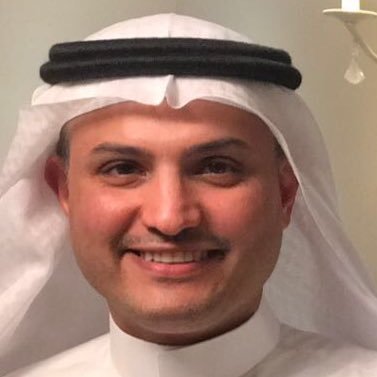
The status of stroke care during Hajj
Each year, millions of Muslims take part in Hajj, the annual Islamic pilgrimage to Mecca. The Ministry of Health (MOH) in KSA, in association with the Ministry of Hajj, works to cater for the health issues related to all pilgrims during the Hajj season.
Every year, 15 million people worldwide suffer a stroke. Nearly six million die and another five million are left permanently disabled. Stroke is the second leading cause of disability.
In Saudi Arabia alone, there are between 50-100 cases of stroke a day, which is equivalent to around one case every fifteen minutes. Within an approximate population of 24 million, there are at least 20,000 new strokes, 4000 deaths and 8000 disabilities occurring each year across the country.
The importance of stroke awareness during Hajj and implementing immediate stroke treatment is highlighted so that lives can be saved and permanent disabilities are reduced.
Knowing the signs
Creating awareness is a key element to changing people’s understanding of stroke and acting F.A.S.T to help save a life or prevent life threatening disability. Symptoms of a stroke can occur very quickly and can include sudden numbness or weakness of the face, arms or legs on one side of the body, as well as speech impairment, trouble with eye sight, loss of balance as well as sudden severe - so called thunderclap - headache. Experts stress that F.A.S.T is an easy way to remember the sudden signs of stroke, which reflects Face dropping, Arm weakness, Speech difficulty and Time to call for support.
Immediate and appropriate action is required when a stroke is suspected. There is no substitute for visiting a hospital if a suspected stroke has occurred, neither will taking painkillers, sleeping nor resting. The longer a stroke remains untreated, the greater is the chance of stroke related brain damage and so emergency medical treatment needs to be sought immediately after symptoms begin in order to improve the chances of survival and recovery.
Dedicated stroke units
Developing stroke units is of paramount importance, because stroke unit care is one of the few treatment options for acute stroke with proven reduction of death. Correct protocols in hospitals are extremely crucial in the management and treatment of stroke and can actually save a life and even have a patient walk out with minimal disability.
To improve the chance of survival or reduce the change of permanent disability, rapid diagnosis is required to identify a stroke and for immediate medical treatment (within 60 minutes of hospital arrival, known as the Golden Hour) which can shorten door-to-needle times in patients arriving within the golden hour and improve patient outcomes.
Management of the patient starts when they first arrive at the emergency room, and then sent to the triage nurse who examines the patient and, upon confirmation, refer them for treatment. The patient is then taken for a laboratory test, the core team begins action, performs a CT scan and finally, the injection or catheter-based therapies (or both) are administered as necessary.
Yet, up to 80% of strokes can be prevented. Changing lifestyle factors such as eating habits, physical activity, and quitting smoking are examples of lifestyle stroke risk factors, if changed, can directly lower the stroke risk. Additionally high blood pressure, atrial fibrillation, high cholesterol and diabetes are all medical risk factors for stroke which can be controlled to reduce the risk of stroke. Around 30% of men and 44% of women in Saudi Arabia are obese and one-quarter to one-sixth of adults have diabetes, putting themselves at a higher risk of having a stroke.
There is currently a need for more research of stroke incidence during Hajj. There is an opportunity to develop a vascular preventative and screening programs for all the pilgrims to evaluate risk factors that may increase the occurrence of stroke during Hajj. In addition, because of high reported rates of infection such as upper respiratory infections and psychological stress, the Hajj pilgrimage brings a unique opportunity to evaluate such risk factors on the occurrence of stroke.
It is important that healthcare systems are equipped with appropriate medical care including acute stroke treatment during Hajj to ensure the timely access to dedicated stroke care units and stroke management teams.
Currently in Mecca, there are five dedicated centers that are linked during Hajj season to ensure timely triage and access to treatment; centered in King Abdullah Medical City, which is linked to Al Noor Hospital, King Faisal Hospital in Makkah, King Abdulaziz Hospital and Her’aa Hospital.
Driving awareness around this time of year is crucial for all those taking part in Hajj to ensure timely stroke management amongst the community as well as with healthcare professionals. Additionally, a dedicated stroke unit in a hospital, with a committed medical setting, physicians and specialized nurses, with ample training and experience in stroke management can reduce the home-to-treatment time.


























